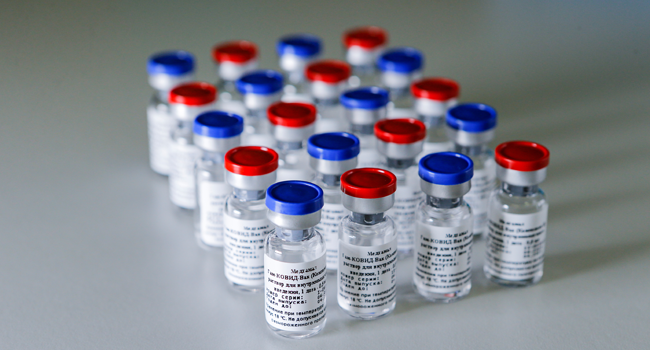Germany on Tuesday raised doubts over the quality and safety of Russia’s coronavirus vaccine, stressing that drug approval is granted in the European Union only after full clinical trials.
“Patient safety is of the highest priority,” a health ministry spokeswoman told German newspaper network RND. “There is no known data on the quality, efficacy and safety of the Russian vaccine.”
Russia claimed Tuesday it has developed the world’s first vaccine offering “sustainable immunity” against the coronavirus, despite mounting scepticism about its effectiveness as fears grow over a second wave of infections across the globe.
President Vladimir Putin said the vaccine was safe and that one of his own daughters had received the inoculation, dubbed “Sputnik” after the pioneering 1950s Soviet satellite.
“I know that it is quite effective, that it gives sustainable immunity,” Putin said of the vaccine developed by the Gamaleya research institute in coordination with Moscow’s defence ministry.
Russia’s health ministry said though clinical trials were not yet complete and final stage testing involving more than 2,000 people was to start only on Wednesday.
Western scientists have previously raised concerns about the speed of development of Russian vaccines, suggesting that researchers might be cutting corners.
The World Health Organization’s spokesman in Geneva Tarik Jasarevic said it was in “close contact” with Russian health authorities but that it was too soon for any WHO stamp of approval.
“Pre-qualification of any vaccine includes the rigorous review and assessment of all the required safety and efficacy data,” he said.
Meanwhile, the World Health Organisation has said any WHO stamp of approval on a COVID-19 vaccine candidate will require a rigorous safety data review, after Russia announced Tuesday it had approved a vaccine.
“We are in close contact with the Russian health authorities and discussions are ongoing with respect to possible WHO pre-qualification of the vaccine,” the United Nations health agency’s spokesman Tarik Jasarevic told reporters in Geneva at an online press briefing.
“Pre-qualification of any vaccine includes the rigorous review and assessment of all the required safety and efficacy data.”
Russia’s Sputnik V vaccine has been developed by the Gamaleya research institute in coordination with the country’s defence ministry.
A total of 165 candidate vaccines are being worked on around the world, according to the latest WHO overview produced on July 31.
Of those, 139 are still in pre-clinical evaluation, while the other 26 are in the various phases of being tested on humans, of which six are the furthest ahead, having reached Phase 3 of clinical evaluation.
The Gamaleya candidate being produced in Russia, which is among the 26 being tested on humans, is listed as being in Phase 1.
Kirill Dmitriev, the head of the Russian Direct Investment Fund which finances the vaccine project, said Phase 3 trials would start on Wednesday, industrial production was expected from September and that 20 countries had pre-ordered more than a billion doses.
‘Stamp of quality’
“Every country has national regulatory agencies that approve the use of vaccines or medicines on its territory,” Jasarevic explained.
“WHO has in place a process of pre-qualification for vaccines but also for medicines. Manufacturers ask to have the WHO pre-qualification because it is a sort of stamp of quality.
“To get this, there is a review and assessment of all required safety and efficacy data that are gathered through the clinical trials. WHO will do this for any candidate vaccine.”
The pandemic has seen an unprecedented mobilisation of funding and research to rush through a vaccine that can protect billions of people worldwide.
“We are encouraged by the speed by which several candidate vaccines have been developing and as we have been always saying, we hope some of these vaccines will prove to be safe and efficient,” said Jasarevic.
“Accelerating progress does not mean compromising on safety,” he said.
AFP














